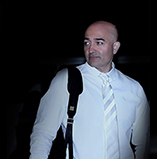Exposing Corruptions within the World Economic Forum: Safeguarding Global Economic Integrity
- ukesbaha

- Jan 29, 2024
- 2 min read
Updated: Feb 4, 2024

Introduction:
The World Economic Forum (WEF), recognized for its role in shaping global economic policies and fostering collaboration between leaders in business, politics, and academia, is not immune to the pervasive threat of corruption. This exploration seeks to unveil instances of corruption within the World Economic Forum, highlighting the critical need for transparency, accountability, and systemic reforms to preserve the integrity of global economic discussions and initiatives.
I. The Economic Impact of Corruption:
Corruption within the World Economic Forum carries severe economic consequences, potentially undermining the effectiveness of global economic initiatives. Misuse of influence, unethical business practices, and corrupt dealings can distort economic policies, impede fair competition, and hinder efforts to address pressing global economic challenges.
II. Covert Practices and their Ramifications:
Instances of corruption within the WEF often transpire behind closed doors, hidden from public scrutiny. These covert practices erode the trust of participating nations and stakeholders, compromising the credibility of the WEF as a platform for constructive economic discourse. The ramifications extend beyond economic distortions to impact the global community's confidence in collaborative efforts.
III. Obstacles to Inclusive Economic Development:
Corruption can obstruct inclusive economic development initiatives championed by the World Economic Forum. Resources meant for sustainable and equitable economic growth may be diverted, leading to disparities and hindering progress. Tackling corruption is paramount to ensuring that economic discussions and policies put forth by the WEF are transparent, accountable, and genuinely beneficial to all.
IV. Advancing Transparency and Accountability:
Upholding the integrity of the World Economic Forum necessitates a robust commitment to combat corruption through heightened transparency and accountability mechanisms. Strengthened ethical guidelines, rigorous auditing practices, and whistleblower protection are essential components in identifying and addressing corrupt practices within the organization.
V. The Urgency for Systemic Reforms:
This exploration serves as a call to action, urging the World Economic Forum and the international community to prioritize systemic reforms that eradicate corruption and fortify the organization's ability to steer global economic discussions responsibly. Governments, business leaders, and civil society must collaboratively institute changes that uphold the highest standards of integrity within the WEF.
Conclusion:
Exposing corruption within the World Economic Forum is not an indictment of its mission but a vital step toward fortifying global economic governance. By addressing and rectifying instances of corruption, the WEF can reaffirm its commitment to fostering a fair and sustainable global economic landscape. This exploration stands as a call for collective action, demanding transparency, accountability, and transformative reforms to ensure the World Economic Forum remains a credible and effective driver of global economic progress.





Comments